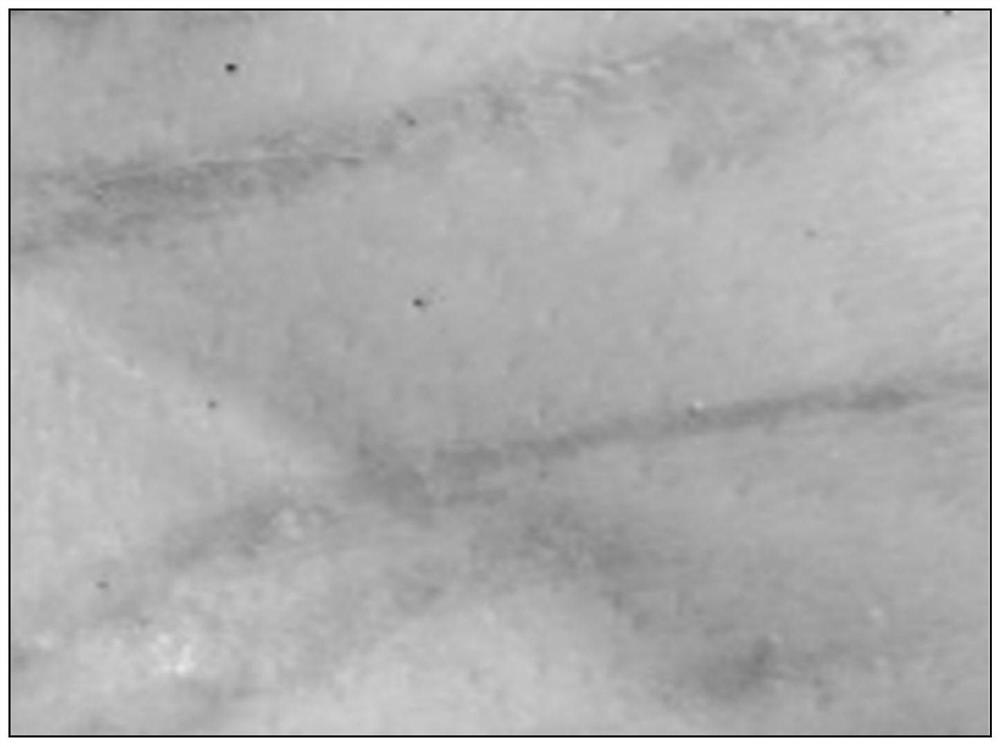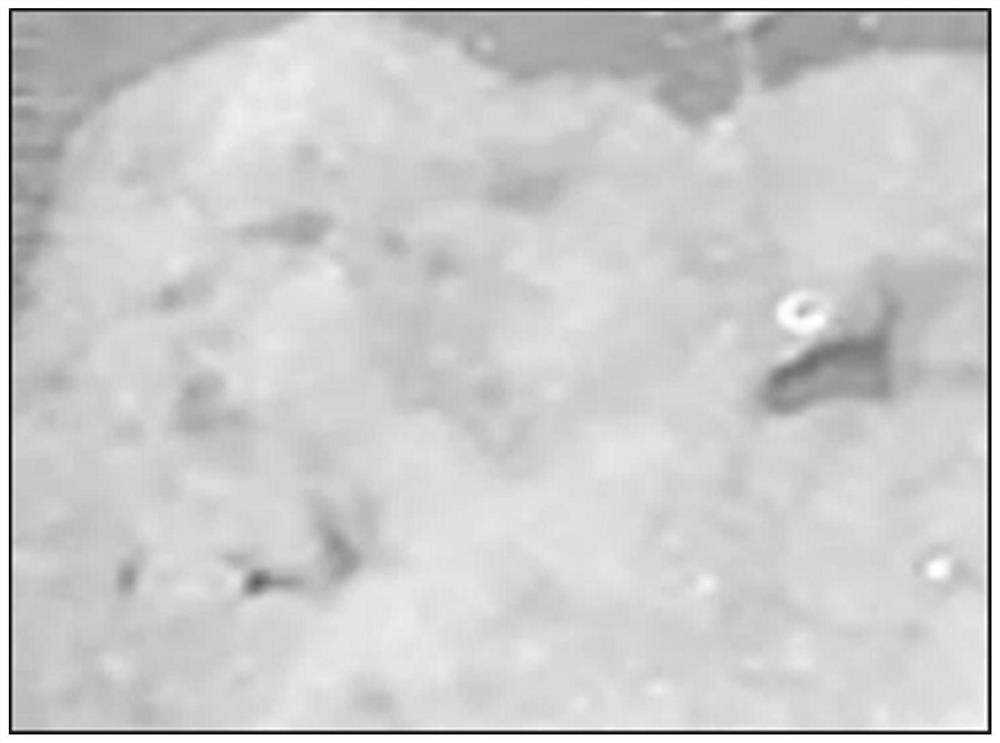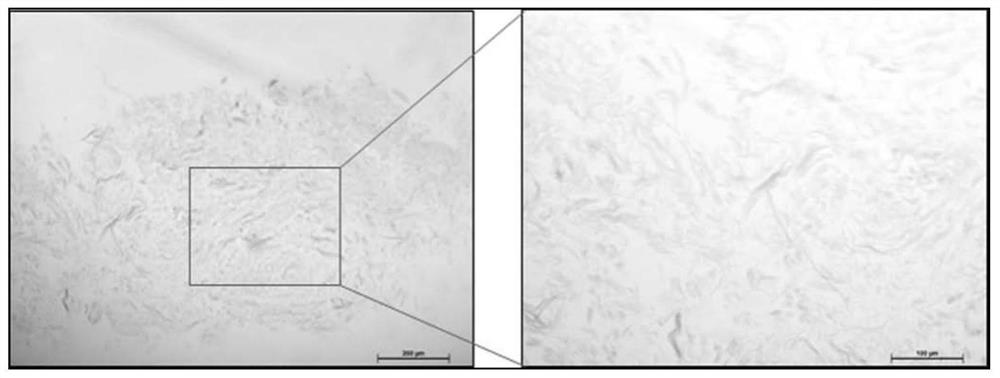Preparation method and application of artificial microparticle skin
A micro-skin and artificial technology, applied in medical science, bandages, prostheses, etc., can solve the problem of not having a complete skin structure, achieve the effect of improving the quality of wound healing, simplifying the treatment method, and excellent decellularization effect
- Summary
- Abstract
- Description
- Claims
- Application Information
AI Technical Summary
Problems solved by technology
Method used
Image
Examples
Embodiment 1
[0049] Embodiment one, a kind of preparation method of artificial particle skin, it comprises the steps:
[0050] S1, Preparation of acellular dermal matrix microparticles.
[0051] S11, soak the pigskin tissue in 75% ethanol for 1 min, wash it twice with PBS solution, scrape off excess body hair, and trim the subcutaneous adipose tissue with surgical scissors; then use 0.25% neutral protease at 4°C After digestion for 12 hours, the epidermis and dermis were separated, and the epidermis was removed to retain the dermis.
[0052] S12, pulverizing the dermal tissue into particles and adding EDTA-trypsin solution to obtain a suspension, the concentration of EDTA in the EDTA-trypsin solution is 0.02%, and the concentration of trypsin is 0.25%. The EDTA-trypsin solution with dermal tissue particles was placed in a constant temperature shaker, and shaken at a speed of 80 rpm for 24 hours, and the solution was changed every 6 hours. Then washed twice with PBS solution, ultrasonical...
Embodiment 2
[0070] The second embodiment analyzes the effect of the artificial microparticle skin prepared in the first embodiment on deep wound healing after burns, which specifically includes the following steps.
[0071] Step 1: Take 15 7-week-old nude mice grown in the same environment, divide male and female into 3 groups, 5 mice in each group, and name them as ADM group, EpSC group, and artificial microskin group respectively, and number them for adaptive feeding. Used for experiment after 1 week.
[0072] Step 2: Use 2.4% chloral hydrate solution (7.5mL / kg) for intraperitoneal injection for anesthesia. After disinfection, the puncher will make holes symmetrically on the central axis of the back skin of nude mice, causing full-thickness skin defect wounds. Each has a circular hole with a diameter of 6mm, one side is used as the control surface, and the other side is used as the experimental surface;
[0073] Step 3: Collect the artificial microparticle skin prepared in Example 1 in...
Embodiment 3
[0083] Embodiment three, a kind of preparation method of artificial particle skin, it comprises the steps:
[0084] S1, Preparation of acellular dermal matrix microparticles.
[0085] S11, soak the pigskin tissue in 75% ethanol for 1 min, wash it twice with PBS solution, scrape off excess body hair, and trim the subcutaneous adipose tissue with surgical scissors; then use 0.25% neutral protease at 4°C After digestion for 12 hours, the epidermis and dermis were separated, and the epidermis was removed to retain the dermis.
[0086] S12, pulverize the dermal tissue into particles and add EDTA-trypsin solution to obtain a suspension. The concentration of EDTA in the EDTA-trypsin solution is 0.01%, and the concentration of trypsin is 0.5%. The EDTA-trypsin solution with dermal tissue particles was placed in a constant temperature shaker, and shaken at a speed of 80 rpm for 24 hours, and the solution was changed every 6 hours. Then washed twice with PBS solution, ultrasonically o...
PUM
 Login to View More
Login to View More Abstract
Description
Claims
Application Information
 Login to View More
Login to View More - R&D
- Intellectual Property
- Life Sciences
- Materials
- Tech Scout
- Unparalleled Data Quality
- Higher Quality Content
- 60% Fewer Hallucinations
Browse by: Latest US Patents, China's latest patents, Technical Efficacy Thesaurus, Application Domain, Technology Topic, Popular Technical Reports.
© 2025 PatSnap. All rights reserved.Legal|Privacy policy|Modern Slavery Act Transparency Statement|Sitemap|About US| Contact US: help@patsnap.com



